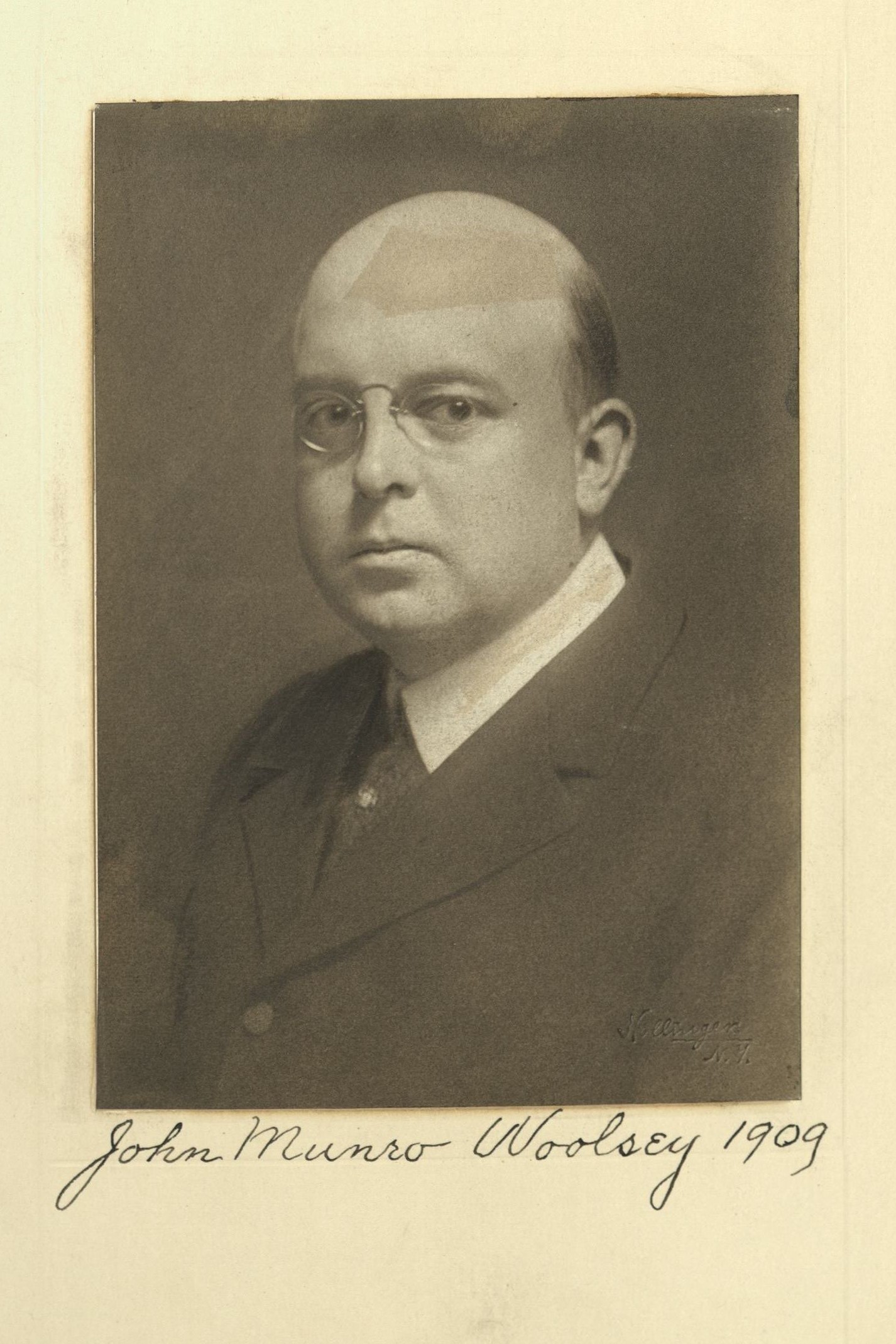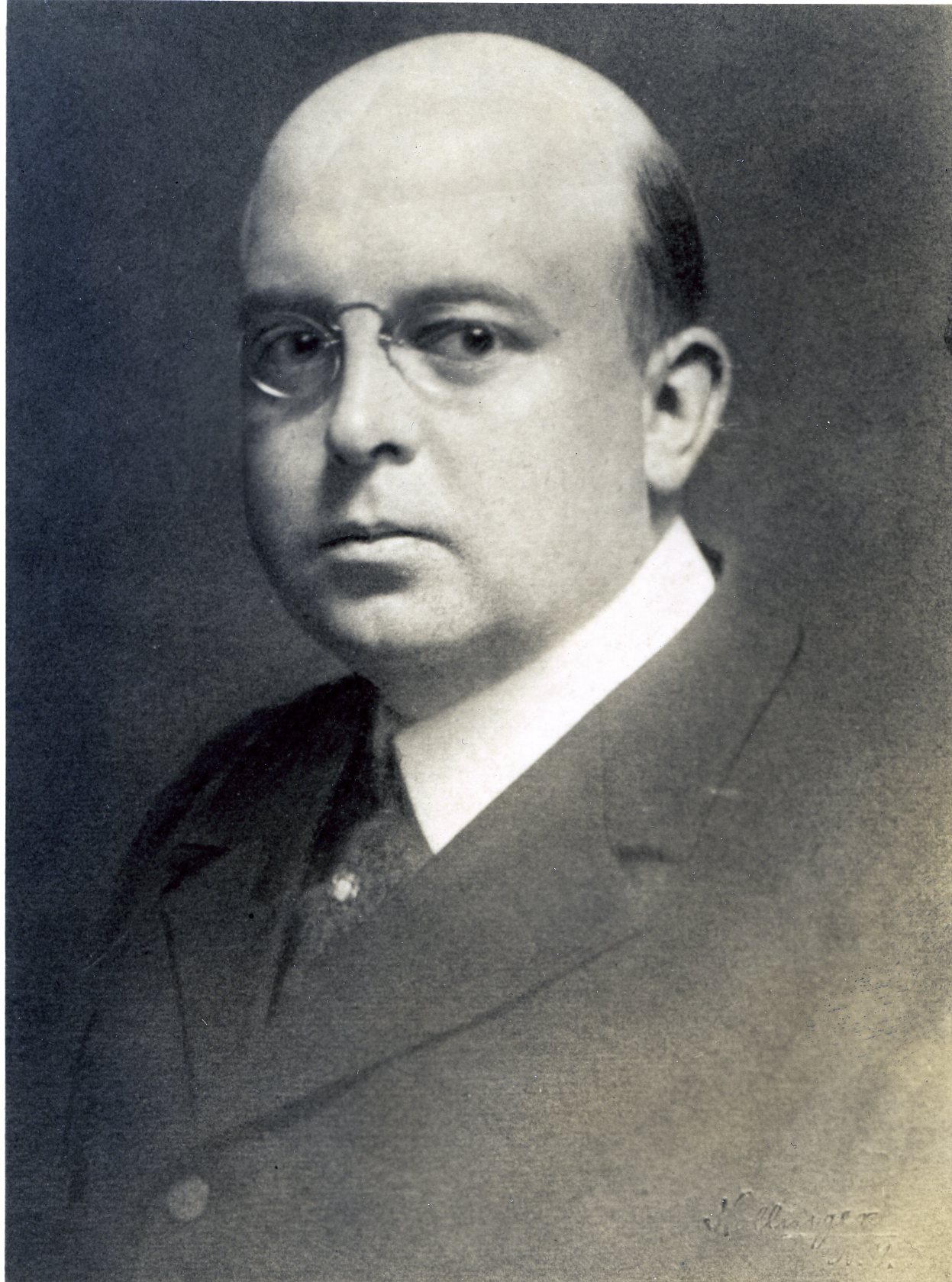Lawyer/Judge
Centurion, 1909–1945
Born 3 January 1877 in Aiken, South Carolina
Died 4 May 1945 in New York (Manhattan), New York
Buried Woolsey Cemetery , Glen Cove, New York
, Glen Cove, New York
Proposed by H. Galbraith Ward and Charles C. Burlingham
Elected 1 May 1909 at age thirty-two
Archivist’s Note: Second vice president of the Century Association, 1936–1944. Father of John M. Woolsey Jr.
Century Memorial
John Munro Woolsey. [Born] 1877. Admiralty lawyer and Federal Judge.
A Vice-President of the Century, originator of the “brighter-belly movement” [advocating that colored waistcoats be worn at monthly meetings]. No member loved the Century more nor was more loved by the Century. He gave his rare wines to the Board of Management for their dinners; he presented the Club with beautiful clocks and other furniture. His sure taste in wines, furniture and silver, matched his learning and his felicity of expression.
In England, until the middle of the 19th Century, practitioners in the Admiralty and Ecclesiastical Courts, and the judges, all were Doctors of Civil Law. Their lodgings and even their court houses were erected at their own expense. This was “Doctors’ Commons.” The practice there was gracious and learned, and the arts of literature flourished. I always thought, when I saw him, that Judge Woolsey should have been there; and I could not help remembering Lord Bougham’s praise of the judgments of Lord Stowell, the greatest of English Admiralty judges: “If ever the praise of being luminous could be bestowed upon human compositions it was upon his judgments”; and Lord Lyndhurst’s dictum that it is as vain to praise as to imitate them.
Although we know them, it is well to recall some examples of our own Judge Woolsey’s luminosity:
In a suit for plagiarism he declared, “You cannot copyright the words of the dictionary.” In reference to the House of David baseball team, he mused that “from time immemorial, beards have been in the public domain.” The Betty Boop doll he thought had “the most self-confident little bust imaginable.”
In 1933 his decision removed the customs ban as obscene literature from James Joyce’s “Ulysses.” Judge Woolsey’s understanding of the book was complete, whereof the following is just one bit of evidence: “In respect to the recurrent emergence of the theme of sex in the minds of his characters, it must always be remembered that his locale was Celtic and his season was spring.”
Source: Henry Allen Moe Papers, Mss.B.M722. Reproduced by permission of American Philosophical Society Library & Museum, Philadelphia
Henry Allen Moe
Henry Allen Moe Papers, 1945 Memorials


